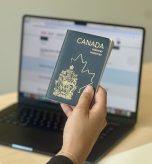Moving abroad is a life-changing decision that often brings exciting career opportunities and a higher quality of life. For many professionals, however, the move is not complete without their family by their side. Understanding how to bring your family with you when you relocate is crucial to ensuring a smooth transition. Each country has specific rules, visa categories, and requirements for family reunification, and being well-prepared can save you time, money, and unnecessary stress.
Understand Family Sponsorship and Dependent Visas
Most countries offer visa pathways that allow immigrants to bring close family members. These typically include spouses, dependent children, and in some cases, parents. For example, Canada provides a Family Sponsorship Program, the UK allows dependents under the Skilled Worker visa, and Australia offers Partner and Child visas. Reviewing the immigration policies of your destination country helps you identify the right category for your family’s application.
Meet Financial and Eligibility Requirements
Governments often require proof that you can financially support your dependents without relying on public funds. This may include minimum income thresholds, proof of employment, or bank statements. For instance, the UK has a minimum income requirement for sponsoring dependents, while Australia may ask for evidence of stable employment. Meeting these requirements is essential to demonstrate that your family will be well supported after relocation.
Prepare Documentation Carefully
Successful family visa applications depend on accurate and complete documentation. Commonly required documents include:
- Passports and birth certificates of family members
- Marriage certificates or proof of partnership
- Medical examinations and health insurance
- Proof of financial stability and accommodation abroad
Ensuring that documents are translated and certified, if required, will help avoid delays or rejections.
Factor in Healthcare and Education Needs
When moving with your family, it is important to consider access to healthcare and education. Many countries require proof of health insurance coverage for dependents before approving visas. If you have school-aged children, researching the local education system, tuition costs, and admission requirements will make the transition easier for them. This preparation ensures that your family’s well-being is prioritized from the start.
Plan for Settlement and Adjustment
Relocating as a family involves more than just securing visas. Settling into a new country requires adjustment to cultural norms, language, and lifestyle. Choosing family-friendly neighborhoods, finding community support groups, and enrolling children in schools early can ease the transition. Employers in many countries also provide relocation support, so it is worth asking about assistance programs.
Seek Professional Guidance
Immigration policies are complex and vary from country to country. Small errors in the application process can cause significant delays. Consulting an immigration expert or licensed consultant can help you understand the process, prepare documents, and improve your chances of success. Professional guidance also ensures that your family’s move is aligned with the latest visa regulations.
Conclusion
Bringing your family with you when you move abroad requires careful planning, financial preparation, and an understanding of visa requirements. By choosing the right family sponsorship program, organizing documents thoroughly, and considering healthcare and education, you can make the relocation process smoother for your loved ones. With the right strategy and professional support, you can achieve not only a successful career abroad but also a fulfilling family life in your new home country.





